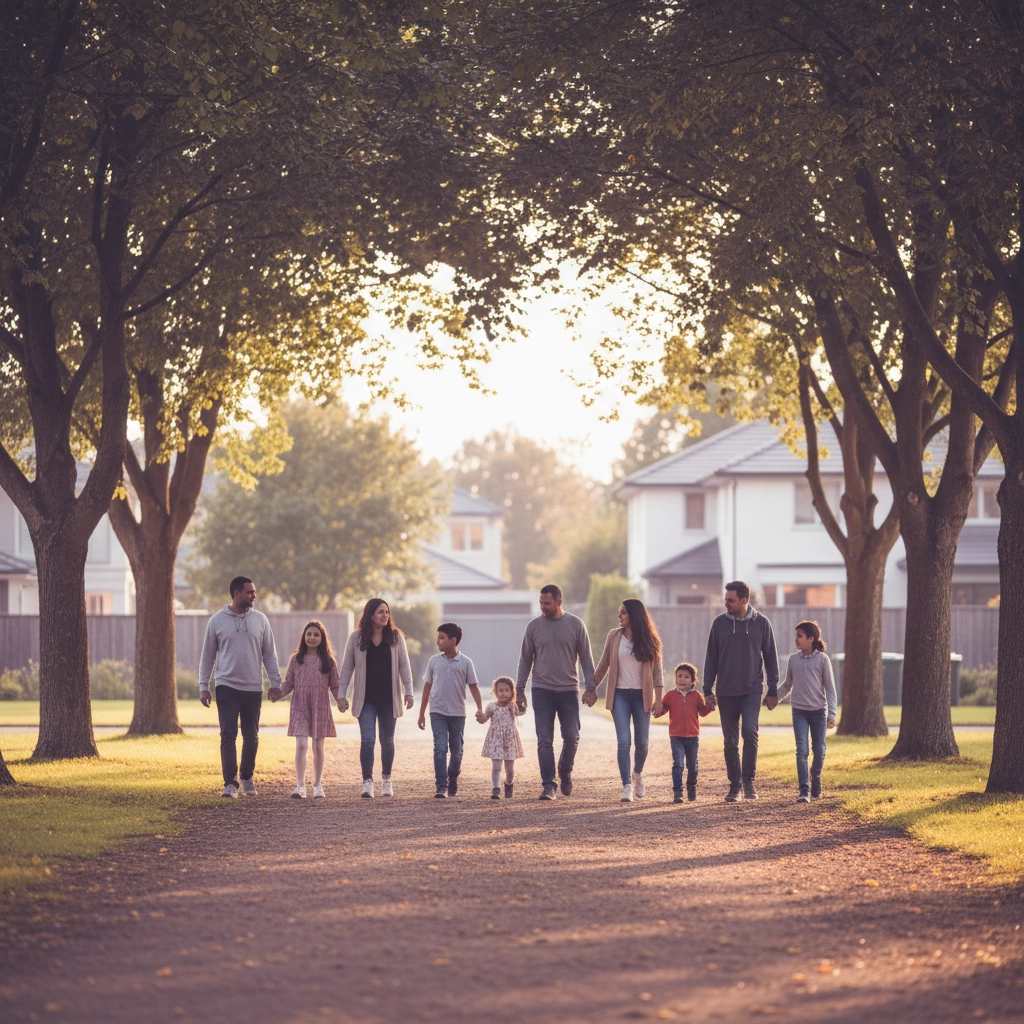September is Suicide Prevention Awareness Month: How Chicagoland Families Can Make a Difference
- clairestew
- Sep 19, 2025
- 5 min read
September brings more than the start of a new school year, it marks National Suicide Prevention Awareness Month, a crucial time for families across Chicagoland to unite, learn, and take meaningful action in their communities. This month-long observance honors the lives we've lost while empowering families with the knowledge and resources needed to create real change in our neighborhoods.
Understanding the Reality in Our Communities
Here in Illinois, the statistics tell a story that touches families throughout the Chicago area. Suicide ranks as the third leading cause of death for young people aged 10 to 19 in our state, and tragically becomes the second leading cause for children between 10 and 14 years old. In 2018 alone, we lost 132 Illinois youth to suicide, that's more than one young person every three days.
These numbers aren't just statistics. They represent real families in communities from Lincoln Park to Aurora, from Evanston to Oak Park, who have experienced unimaginable loss. Globally, the crisis continues with someone taking their own life every 43 seconds, highlighting why our awareness and action matter more than ever.

Important Dates for Family Engagement
Throughout September, several key observances provide opportunities for families to get involved and show support:
988 Day on September 8th celebrates the 988 lifeline that provides immediate suicide and mental health crisis support. It's a perfect day to save this number in your family's phones and talk about when it might be helpful.
National Suicide Prevention Week runs from September 8-14, encouraging families across Chicagoland to have open conversations about suicide and learn the warning signs that could save a life.
World Suicide Prevention Day on September 10th serves as a global moment of awareness, reminding us that prevention efforts connect communities worldwide.
These dates offer natural conversation starters for families who want to address mental health topics but aren't sure how to begin.
Recognizing the Warning Signs
One of the most powerful ways Chicagoland families can make a difference is by learning to recognize when someone might be struggling. Mental health professionals emphasize that most people considering suicide give some indication of their intentions, and knowing what to look for can literally save lives.
Watch for changes in behavior like increased irritability, shifts in eating or sleeping patterns, lack of energy, and trouble concentrating. More serious warning signs include intense sadness and hopelessness, withdrawing from activities that used to matter, declining performance at school or work, and pulling away from family and friends.
Substance use, risky behaviors, and giving away possessions can also signal someone is in crisis. Perhaps most concerning is a preoccupation with death, which might show up in artwork, writing assignments, or conversations.

Additional risk factors include previous suicide attempts, self-harm behaviors like cutting, family history of suicide, and experiences with bullying, trauma, or abuse. Being aware of these factors helps families understand when extra support might be needed.
Taking Action as Families
Building Open Communication
Many families worry that talking about suicide might plant the idea in someone's mind, but research shows the opposite is true. Having open, caring conversations actually creates opportunities for connection and support. Don't hesitate to ask directly, "Are you having thoughts of suicide?" If the answer is yes, stay with the person and immediately contact 988.
When supporting someone who might be struggling, focus on listening without judgment. Ask what would help in that moment without immediately jumping to solutions. Sometimes just being present and following up with continued support makes all the difference. You might also help connect them to mental health care providers in our community.
Strengthening Family Resilience
Chicagoland families can proactively build protective factors within their homes and neighborhoods. Help children develop strong coping and problem-solving skills. Support programs that teach social skills, whether through schools, community centers, or youth organizations throughout the Chicago area.
Boost connections to friends, family, and community networks. Research consistently shows that being closely linked to family and community support decreases suicidal thoughts and behaviors. This might mean encouraging participation in local activities, sports teams, volunteer opportunities, or cultural events that help young people feel connected to something larger than themselves.

Removing Barriers to Care
Mental health challenges are common and treatable, making the removal of barriers to care potentially the most lifesaving action families can take. Familiarize yourself with mental health resources in your specific community: whether you're in the Loop, the South Side, or suburban Cook County.
Don't hesitate to reach out to your family physician for guidance. Many primary care offices now have embedded mental health experts to improve access to care right in your neighborhood. Remember that seeking help is a sign of strength, not weakness.
Crisis Resources Available Right Now
When immediate support is needed, several resources are available 24/7 for Chicagoland families:
Text CONNECT to 741741 to reach a live volunteer Crisis Counselor through Crisis Text Line. This free, confidential service operates around the clock without judgment and can provide immediate support during difficult moments.
Call or text 988 for the 988 Suicide & Crisis Lifeline, which offers immediate support with specially trained counselors. Veterans and their families can access specialized care through this same number.
For immediate danger, don't hesitate to take someone to the nearest emergency department or call 911. Chicago area hospitals are equipped to handle mental health crises and can provide immediate safety and assessment.
The National Suicide Prevention Lifeline at 1-800-273-TALK serves as an excellent resource for young people, their friends, and family members who need someone to talk to right away.

Getting Involved in Your Community
Beyond supporting individual families, there are numerous ways to get involved in suicide prevention efforts throughout Chicagoland. Many local schools welcome parent volunteers for mental health awareness programs. Community centers often host events during Suicide Prevention Month that need volunteer support.
Consider joining advocacy efforts that work to improve mental health resources in Illinois. Contact your local representatives about funding for youth mental health programs. Share resources on social media to help other families learn about warning signs and available support.
Local organizations, including the Mental Health Association of Greater Chicago, offer training programs for families who want to become more skilled at recognizing crisis situations and providing initial support.
Moving Forward Together
Suicide prevention isn't something that happens only in September: it's a year-round commitment to supporting the mental health and wellbeing of everyone in our communities. By understanding the scope of the crisis, recognizing warning signs, fostering open communication, and knowing how to access immediate help, Chicagoland families can play a vital role in prevention efforts.
Every conversation matters. Every moment of support counts. Every connection made has the potential to save a life right here in our communities. Whether you're in downtown Chicago, the surrounding suburbs, or anywhere in between, you have the power to make a difference.
Join us in making September: and every month: a time of hope, connection, and life-saving action. Together, we can ensure that fewer families experience the devastating loss of suicide, and more young people get the support they need to thrive.
For immediate help, call or text 988. To learn more about mental health resources in our community, visit our website or reach out: we're here to support you and your family every step of the way.

Comments